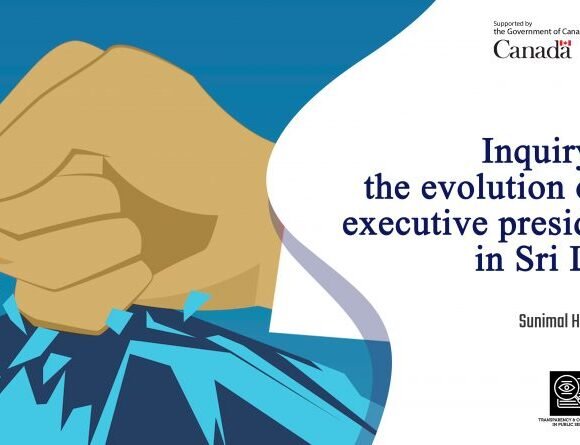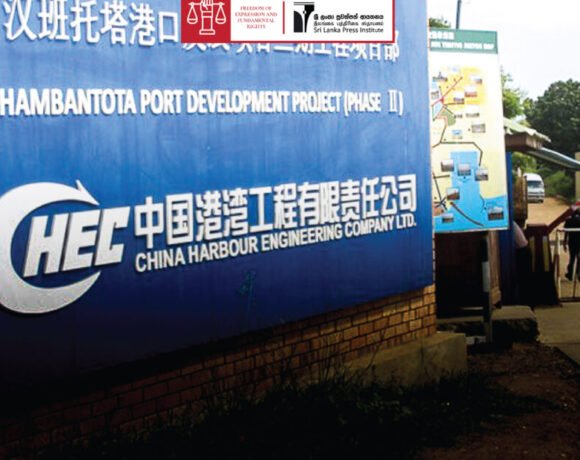
Are Sri Lankan newspapers neutral?
Jemsith
The newspaper sector is service based. Without being submissive to anyone, it should function independently; express its views bravely, condemn the injustices, law-breaking and human rights violations in the country and stand by the law. This sector is considered the fourth pillar of a democratic society. Does the media, who are supposed to be this fourth pillar even realize their responsibilities, respect the ethics of journalism and adhere to them? In reality, the answer is no in Sri Lanka.
With the executive, legislative and judicial arms considered to be the first three pillars of democracy, media is considered as the fourth pillar. The first three pillars are directly or indirectly obliged to be answerable to the people. The executive is answerable to the Parliament. Members of Parliament are answerable to the judiciary. Whereas the media are in a position to question the other three and is in no way obliged to be answerable to the public. The newspapers should be answerable to the people who have confidence in them. Most media however, evade this democratic duty.
People are the resources of the country. On behalf of such people the media should question injustices and atrocities committed against the people. This is the chief duty of the newspapers. When religion, rights and economy of a minority community are oppressed by racial and religious violence and are refused and strangled, the media should be the voice of the oppressed and affected people. But it seems to function in racial, religious and economical manners which are against the ethics of journalism.
When people are attracted to information by way of devices, the newspapers also follow electronic media and social trends. In order to increase their circulation in the midst of readers their path is based on ethno religious policy. As a result the trustworthiness of news in the papers is on the decline. In addition, ethno religious ideas are provoked. The media barely discusses initiatives taken in the form of economic policies and development schemes for the betterment of the people or about their outcomes. They do not publish about poverty, gender discrimination, child labour, downfall of farmers and struggle for daily existence.
In Sri Lanka newspapers are published in Sinhala, Tamil and English languages representing Sinhalese, Tamil and Muslim people. While there are newspapers published in Sinhala and English languages for Sinhalese people, only Tamil papers are published for the minority Tamil and Muslim people. In Sri Lankan population terms, 74.9% Sinhalese speaking people, 15.4% Tamil and Muslims and rest speaking other languages. Not only are the ethics of journalism violated, but, instead of publishing sensible news, with their own interest, they publish provocative news that brings about more ethno religious rifts and disturbances.
In both Sinhala and English language papers, even by mistake, news regarding the problems of land, religion, rights, democracy and economy of the Tamil and Muslim minorities, and their demands and struggles are not published. These newspapers merely trample the ethics of journalism when they published news about the 30 year old struggle by the Tamils to win their rights and the racial and religious violence against the Muslims in the aftermath of the 2019 Easter Sunday attacks.
The recent peaceful march from Pottuvil to Polikandy by Tamils calling for justice can be cited as a good example. Whilst this march attracted the attention of international media, the Sri Lankan Sinhala and English newspapers blacked out this march by abstaining from publishing even a small bit of this news. At the same time Tamil newspapers carried this as headline news. This clearly indicates the racial discrimination in Sri Lanka.
In this connection even US Ambassador to Sri Lanka Aleina B Teplitz, pointed to the partiality of the Sri Lankan newspapers. She tweeted: Peaceful protest is an important right in any democracy and significant, legitimate concerns should be heard. I saw Tamil media coverage of the march from Pottuvil to Point Pedro and wondered why it was not more widely covered by Colombo-based media?
It is not that the Sri Lankan Sinhala and English papers are working with racial ideas. They are powerless to question incidents where their own people are affected. When they point out the misdeeds of the government or a private establishment they face the risk of losing advertisements. Profit motive is prevailing more over them.
For example, when information came out regarding the milk powder imported by a leading company containing poisonous substances, newspapers did not publish this news. In return, these media outlets were given many advertisements continuously by that company for some days. This is the same thing that happens with political advertisements during elections.
Now it could also be seen that newspapers, the watchdogs of democracy have become watchdogs of exploitation and ambassadors of profit making. In an environment where money is the capital, newspapers have become large profit making entities.
Politics and capitalism have evolved into a big problem for newspapers. Business and political motives decide the news. Functions of most of the media are dependent on income from advertisements. The price paid by readers is less than 15%. Under the circumstances would they pay importance to the needs, problems and demands of the people or to the requirements of the advertisers?
Though Karl Marx served as a journalist, what he said about journalism is important. At a debate about newspaper censorship he said: Even when it is legal, censorship will not be morally good. Slavery even though it is legalized, it is immoral. Censorship is similar to that.
ශ්රී ලංකාවේ පුවත්පත් කලාවේ ඛේදවාචකය
இலங்கை பத்திரிகைகள் நடு நிலையானவையா?







